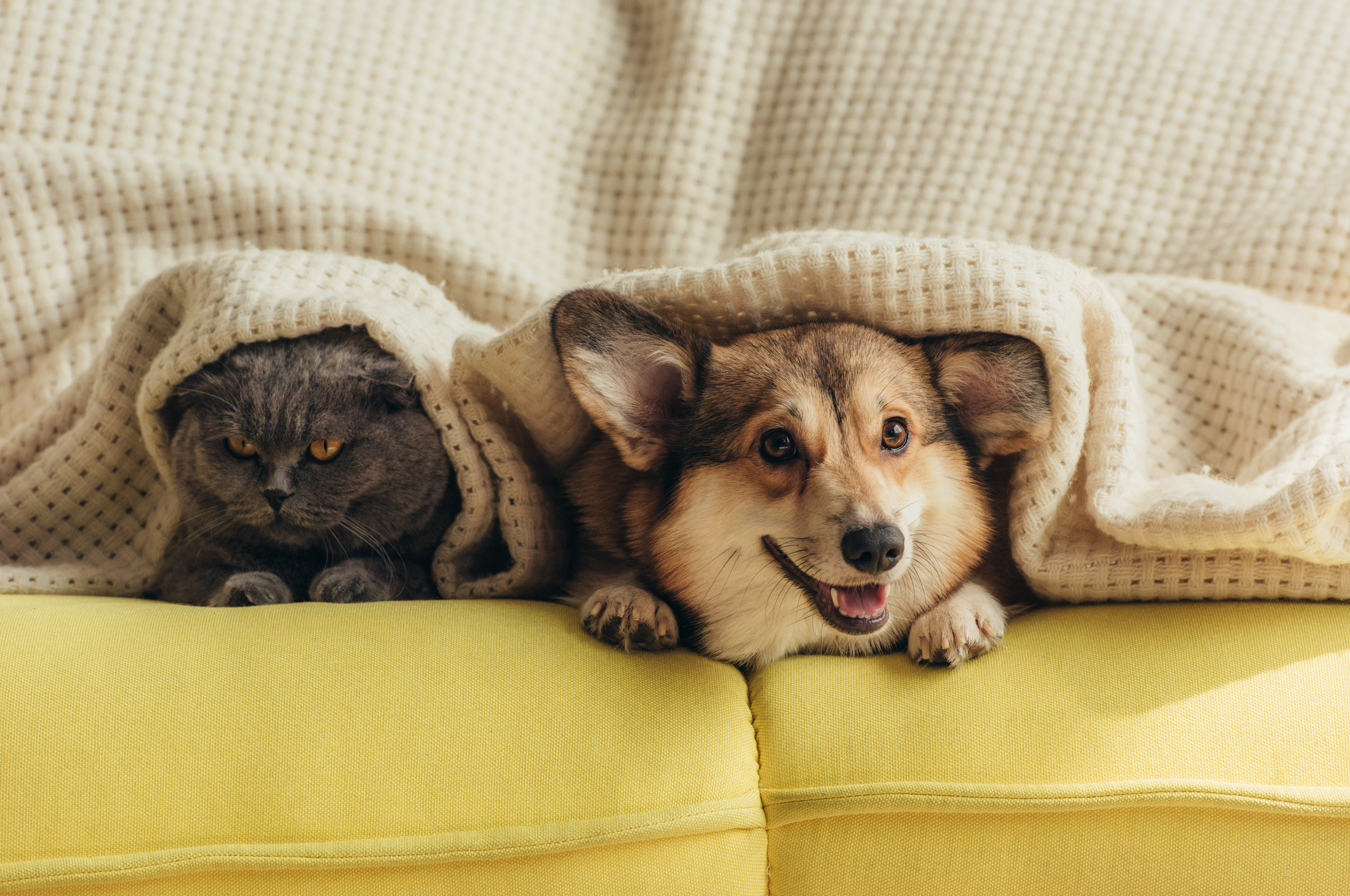
Pet-Safe air humidifier. Meet Klarta Humea
Do you have a dog or cat and wonder if you can use an air humidifier around them? This article is for you. In the following article, we debunk the facts and myths about air humidifiers. Choose a pet-safe air humidifier from Klarta.
Is an air humidifier beneficial for cats? Which air humidifier should you choose for a home with a dog? What is the difference between an evaporative humidifier and an ultrasonic one, and which humidifier is the healthiest?
Air humidifier and pets – popular facts and myths
FACTS
1. Pets, like humans, suffer the effects of dry air – FACT
The effects of being in a dry environment are similar for pets and humans. Primarily, they manifest as dry mucous membranes, dry, static-prone fur, more frequent itching, dandruff, but also dry paw pads, increased thirst, or lack of interest in playing and activities.

2. An air humidifier benefits pets' respiratory systems – FACT
Evaporative air humidifiers safely improve the condition of the respiratory system and can make infections milder by easing symptoms of a stuffy nose or mucus buildup. They can also ease the course of asthma (estimated to affect 1% of domestic cats in the United States).
3. Pet-safe air humidifier WITHOUT essential oils – FACT
While enticing with their scent, helping to relax, and sometimes relieving ailments, essential oils can be harmful to pets. What is soothing for humans can cause digestive system irritation for their pets. Essential oils are particularly discouraged for cat owners. Cats lack an enzyme in their liver that is often used to digest medications and concentrates found in essential oils. The American Society for the Prevention of Cruelty to Animals (ASPCA) confirms this, noting that drops of essential oils on cat fur are one of the potentially most toxic threats.
MYTHS
1. An air humidifier is harmful to pets – MYTH
The statement that an air humidifier is harmful or dangerous to pets is a fairly common, unfair generalization. First, it only applies to one group of air humidifiers – ultrasonic humidifiers. Second, it is not a rule, as not every pet will be sensitive to the low-frequency sounds emitted by the device. In a study using garden repellents, only 35% of cats reacted to the sounds emitted by the device. Ultrasonic humidifiers may cause curiosity in some pets, anxiety in others, and no reaction in still others. To completely eliminate the risk of the humidifier negatively affecting your pet, choose a safe and proven evaporative humidifier. The best example is our Humea WiFi and Humea Grande.

2. The water poured into the humidifier must be distilled – MYTH
It is often heard that the water poured into the humidifier should be distilled or at least filtered in a pitcher or boiled. Otherwise, all impurities from the water will be inhaled by pets. This is also untrue for evaporative humidifiers. They are equipped with filters or evaporative mats that prevent mineral particles and impurities from entering the air. Hence, a side effect of regular use of an evaporative humidifier is the buildup of limescale on the filter.

Air humidifier and pets – how to use it safely?
The most important element is choosing the right type of humidifier. The healthiest solution is an evaporative humidifier that generates a cool, invisible, clean mist. It can also be the most hygienic, provided that a few basic rules are followed.
Change water after each use
Regularly changing the water prevents the growth of bacteria and microorganisms in the humidifier tank. Therefore, after each use, it is worth pouring out the remaining water, rinsing it, and then refilling it with fresh water. With frequent, daily use, the remaining water should also be poured out daily or each time you plan to add new water.
Clean the tank
It is also good to wash the tank every few days with warm water and a mild detergent (like dish soap), and then rinse thoroughly.
Descale the filter
As an evaporative humidifier, the Klarta Humea WiFi is prone to limescale buildup from water on the filter. This is a natural process and nothing to worry about. To remove limescale, it is worth soaking the filter in a water and citric acid solution every two weeks. Additionally, the design of the Klarta Humea WiFi filter allows it to be rotated. This way, the limescale that accumulates during evaporation at the top of the filter will dissolve in the water. The easiest way to get rid of its residues is to pour out the remaining water before adding new water.
Sources:
1. Unknown author. The Essentials of Essential Oils Around Pets. ASPCA. 23.06.2022. Accessed: 30.10.2023.
2. Forinash, K, Wolfgang C., Sound: An Interactive Book. 2012. Accessed: 22.07.2022.
3. Klarta.pl
FAQ – Frequently Asked Questions
1. What is the healthiest air humidity?
Dogs and cats, like humans, feel best in an environment with a relative humidity of 40-60%.
2. How to measure air humidity?
The Klarta Humea WiFi air humidifier is equipped with an accurate hygrometer (humidity meter) that helps determine the air humidity in the room. Additionally, many stores offer hygrometers, often costing only a few dollars.
3. Is an air humidifier safe for pets? Which one to choose?
The best choice is an evaporative humidifier. Using the natural method of cool water evaporation, it does not pose a burn risk. Equipped with an evaporative filter, it traps harmful impurities, preventing them from entering the moist air.

